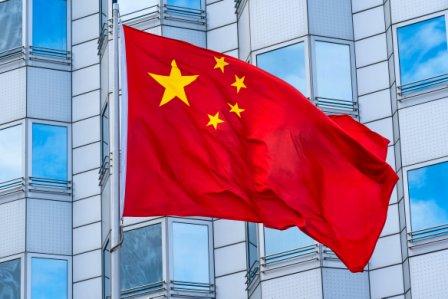After the forecast that China was poised to emerge as the number one economy in the world surging ahead of the US much earlier than projected before, here comes the bad news that it is hit by economic slowdown. China has long been regarded as the engine of global growth. But, the recent developments have alarmed international leaders and investors who are now reluctant to pump their money in China fearing an economic fiasco. In fact, for the first time in decades, the world’s second largest economy is itself in distress and the ripples are being felt across the globe.
Among many factors the worsening property crisis is being identified as the main cause for the downslide. The Chinese economy overcame significant challenges in the past, but the current economic situation has put its 40-year-long successful growth model under a question mark. A complete collapse of its property sector is diagnosed to be the main culprit as it accounts for about 25 per cent of its economy.
This has come as a shock since during the COVID-19 pandemic China alone reported to be the best performing economy in the world with every other country hard hit by poor growth due to lockdowns and restrictions for fighting the pandemic. This even led to speculation whether China had engineered the pandemic from its labs in Wuhan to cripple the economy of its rivals and position itself to become the largest economy in the world in the next few years. But, after a rapid spurt of activity earlier this year following the lifting of COVID lockdowns, growth is stalling, consumer prices are falling, a real estate crisis is deepening and exports are in a slump. Unemployment among youth has become so bad that the government, just like in India, has stopped publishing verifiable data.
Making matters worse, a major homebuilder and a prominent investment company have missed payments to their investors in recent weeks, triggering fears that the steadily declining housing market could further enhance risks to financial stability. In fact, several major investment banks have now pegged their forecasts of China’s economic growth to below 5 per cent. This means China might significantly miss its official growth target of around 5.5 per cent. This is certainly not good news for President Xi Jinping who has tightened his grip on the Chinese Communist Party and the government. His ruthlessness in eliminating his foes and silencing criticism are believed to have been causing resentment among the country’s population.
Another major concern for China is debt incurred by local governments. The model followed for the past four decades was urbanisation on a large scale. This has eventually resulted in huge debt which has soared largely due to a sharp drop in land sale revenues because of the property slump, as well as the lingering impact of the cost of imposing pandemic lockdowns.
The severe fiscal stress seen at local levels not only poses great risks to Chinese banks, but also reduces the government’s ability to stimulate growth and expand public services. The measures taken by Beijing to reverse the situation and boost the economy seem to be nothing more than mere fire fighting.
China’s population crisis and strained relations with key trading partners, including the USA and Europe, are other impediments to its growth. The country’s total fertility rate, the average number of babies a woman will have over her lifetime, dropped to a record low of 1.09 last year from 1.30 just two years before, according to a recent report by state-owned Jiemian.com. That means China’s fertility rate is now even lower than Japan’s, a country long known for its aging society. Earlier this year, China released data that showed its population started shrinking. China’s aging demographics present significant challenges to its economic growth potential as the number of able bodied workers has declined, according to expert observers.
China is known for fudging statistics or not revealing correct figures about its economy. This will, of course, not help the country. The youth unemployment rate has been suspended from the monthly economic data release, having reached a record 21.3 per cent in June. This suggests not only that July was grimmer, but that improvement is not expected soon.
Obfuscation of data and facts has never helped any society and it will not help China tide over its difficulties either. The China of today is a great example of how totalitarian regimes can never usher in prosperity for the people.
